University Report: International Students and Work in a Global Society
VerifiedAdded on 2020/03/02
|5
|803
|52
Report
AI Summary
This report explores the challenges international students face when taking on part-time jobs in Australia to support their studies. The paper delves into issues such as wage discrepancies, mistreatment, and violations of labor laws. It examines how international students, categorized into ethnic and mainstream groups within the food service industry, experience these challenges. The report highlights instances where students are underpaid, forced to work extra hours without proper compensation, and subjected to unfair working conditions. It also references existing research and identifies areas for further investigation, emphasizing the need for improved protections and fair treatment of international students in the workplace. The report underscores the importance of upholding labor laws and ensuring that international students are not exploited while pursuing their education.
1 out of 5
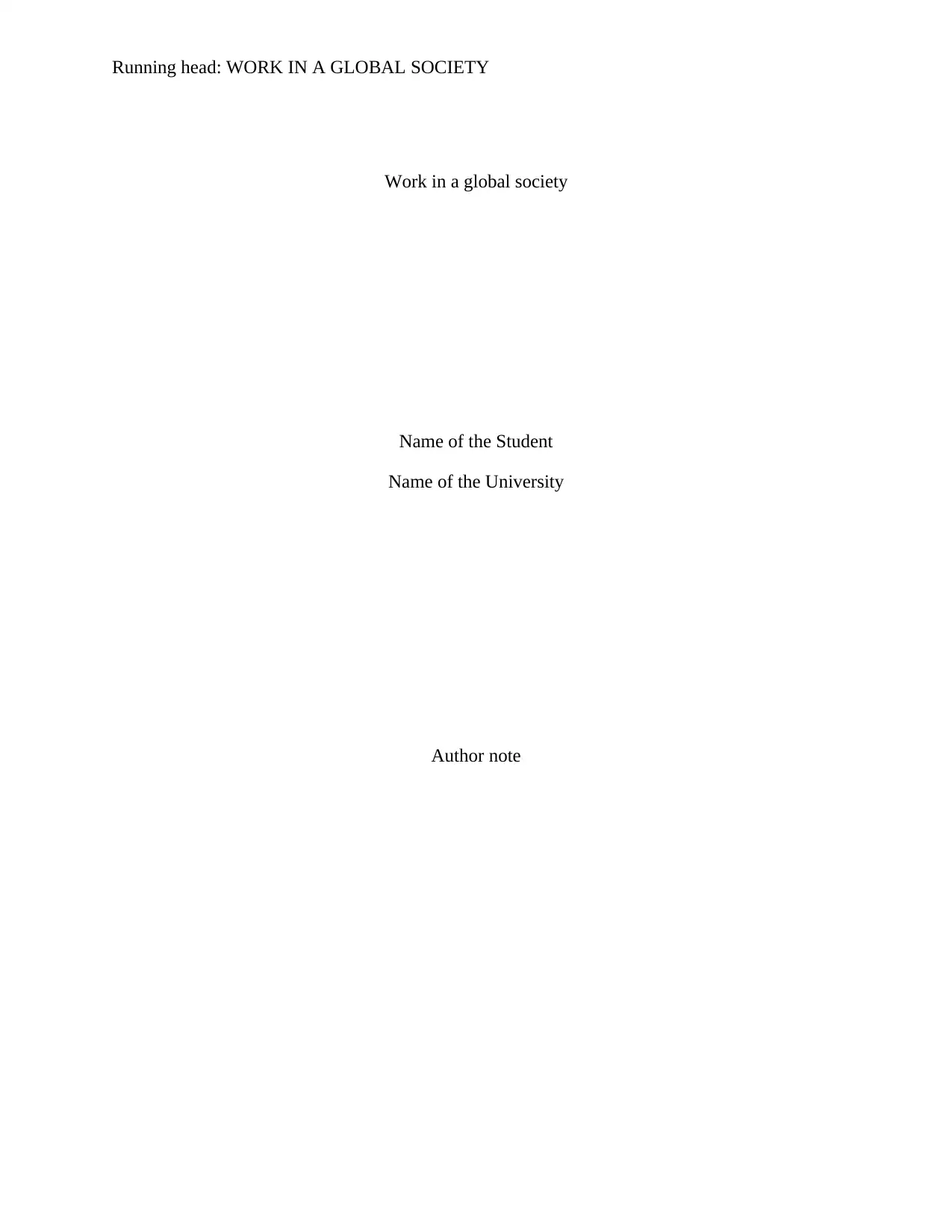
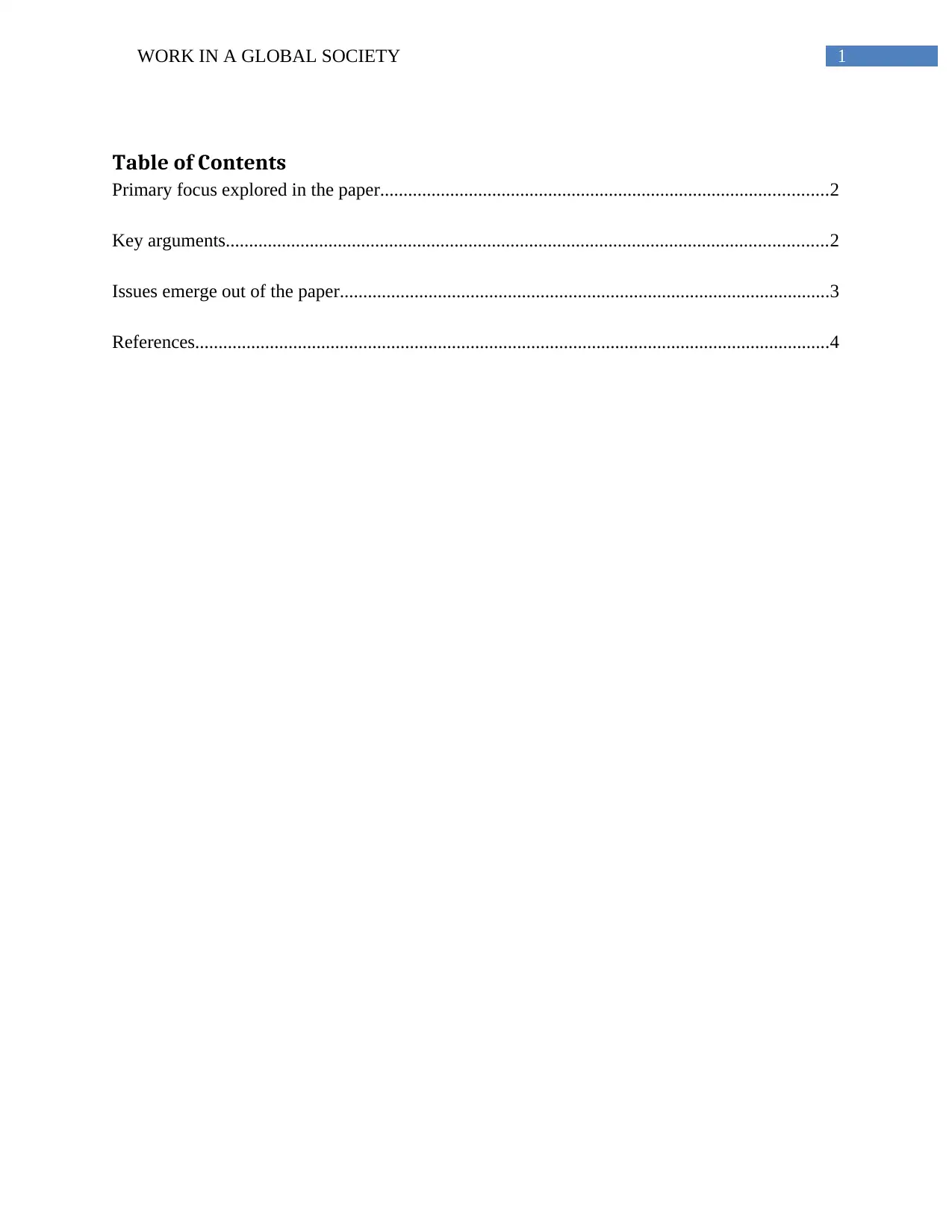
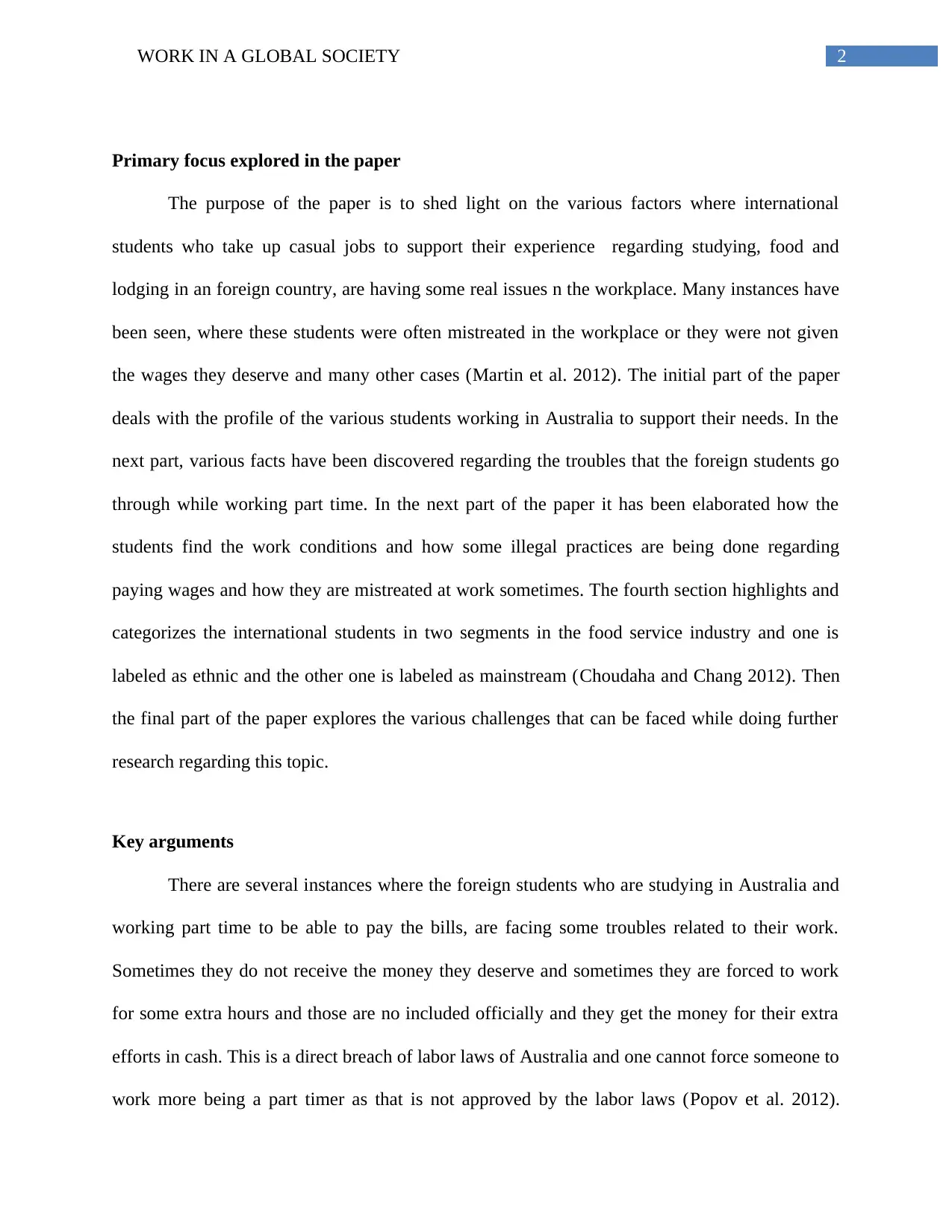

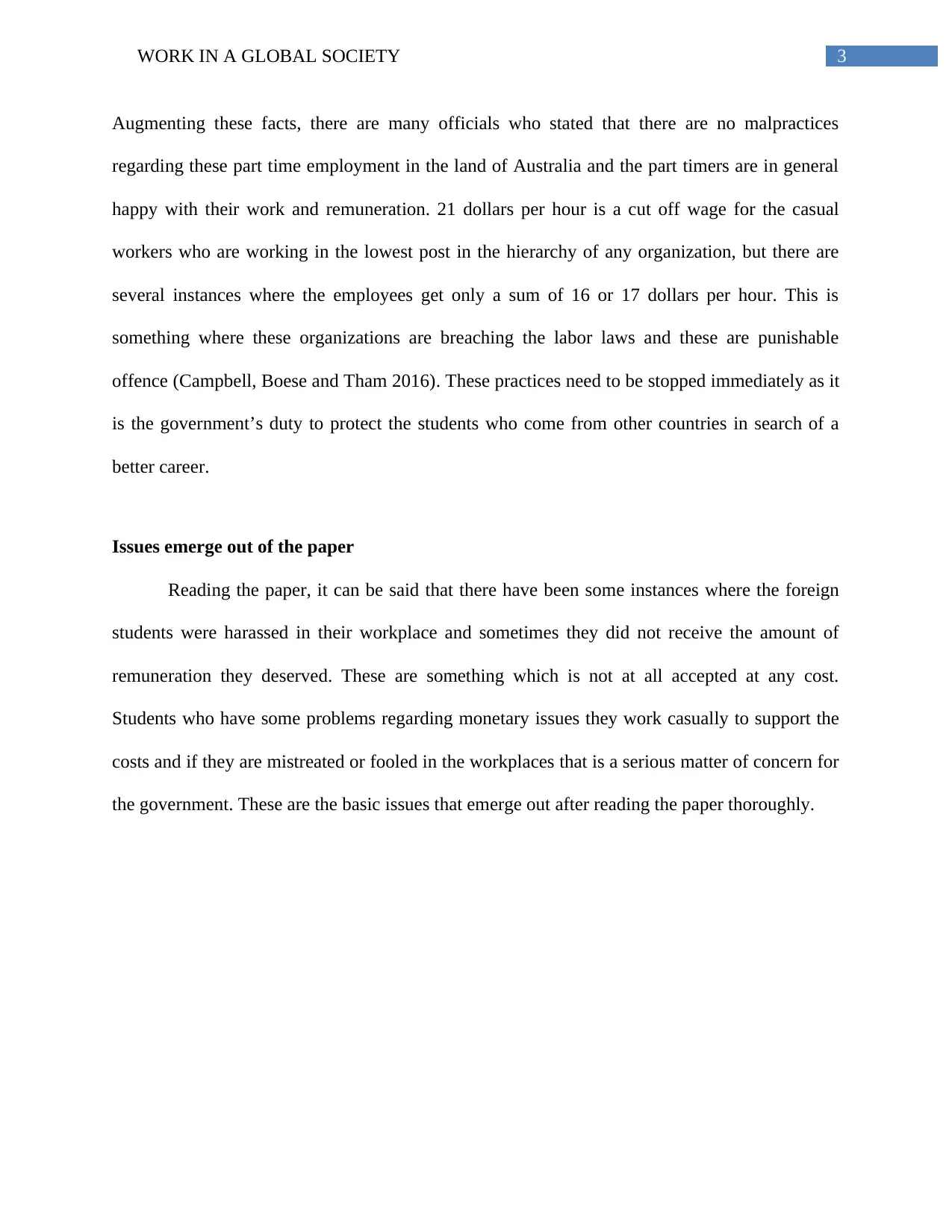
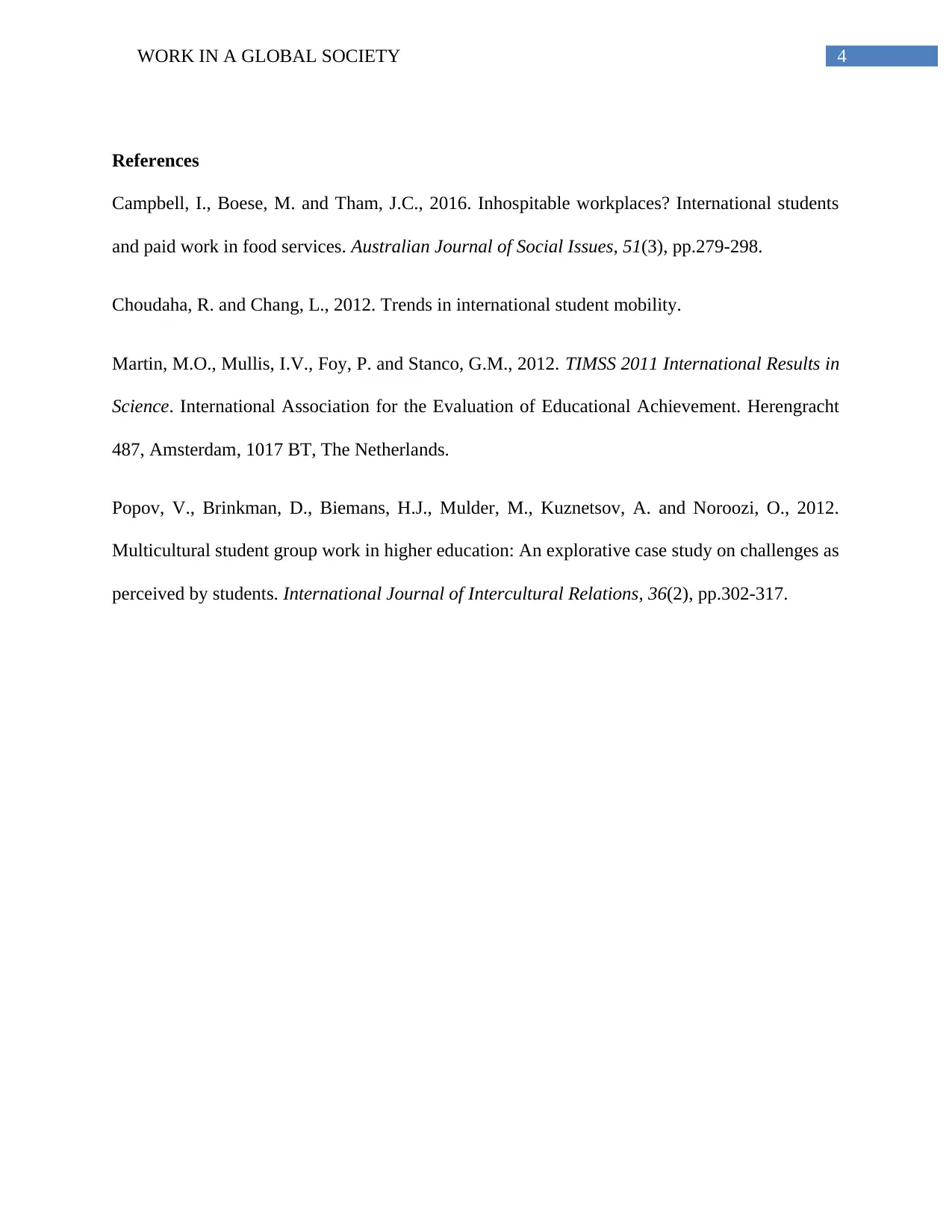



![[object Object]](/_next/static/media/star-bottom.7253800d.svg)